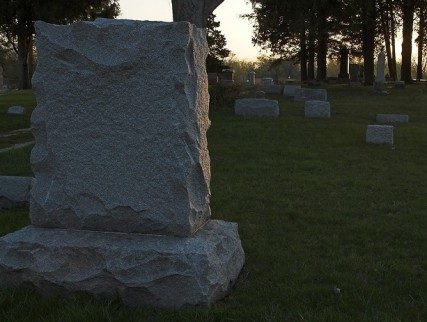DRAPER, Utah (RNS) As young brothers, Kris and Kourt McGuire often spent hours chasing the shimmering dragonflies that floated above a lush, green pasture behind their house.
One day, when their mom told them to come inside to clean their room, they silently obeyed — or so she thought. After a time, she went to check on the two youngest of her four sons. She found their bedroom alive with dragonflies, which they had tied with strings hung from the ceiling.
She smiled, and they all broke into laughter.
It’s one of Lyn McGuire’s favorite recollections of the two boys — a memory that predates the heartache of losing them both.

Kris died at age 8 in 1986, when a car hit him on the way to school. Kourt died about 10 years later, at age 17, killing himself amid depression and the still-stinging absence of his older brother.
Through the years, Ken and Lyn McGuire have found comfort in images of dragonflies, which now fill their home. The dragonflies remind them of warm memories and hope for the future.
They also hope to bring that sense of comfort to other survivors of suicide, and they see the Mormon faith as part of that effort, not an obstacle.
That wasn’t always the case. The Church of Jesus Christ of Latter-day Saints, like many other religions, used to focus largely on what they saw as the sin of killing oneself.
In fact, it used to be that Mormons who committed suicide could not have church funerals or be buried in temple clothing. Likewise, Catholics who committed suicide in past decades were not allowed Christian burials, said Scott Dodge, deacon at the Catholic Diocese of Salt Lake City’s Cathedral of the Madeleine. And until about 20 years ago, many evangelicals assumed those who committed suicide were headed to hell, said Greg Johnson, president of the Standing Together Ministries coalition of evangelical churches.
Today, though most religions still condemn suicide, there’s an understanding in many faiths that those who take their own lives don’t always have full control over their actions.
“What the (Catholic) church tends to recognize now,” Dodge said, “is that most people who (commit suicide) suffer from probably a grave psychological problem or really deep depression or sometimes, sadly, that happens in the grips of some kind of addiction.”
Johnson said he never would preach from the pulpit that those who take their own lives go to hell.
“The grace of God that saves a sinner from their sins,” he said, “is the same grace that saves a sinner who commits suicide from being damned because life was somehow beyond their capacity to cope.”
Similarly, the Mormon faith’s Handbook 2 advises local LDS leaders that “it is wrong to take a life, including one’s own. However, a person who commits suicide may not be responsible for his or her acts. Only God can judge such a matter.” It further says that suicide victims may have Mormon funerals and be buried in temple clothing.
Such compassion also extends to families of those who have killed themselves. Local evangelical leaders do their best to offer help and many Catholic parishes have groups meant to comfort grieving families in general. But Johnson and Dodge said they are unaware of specific suicide-survivor support groups affiliated with their faiths in Utah.
That may also be changing. The McGuires have run suicide-survivor groups for years, and they recently started one affiliated with the LDS that they’re calling Dragonfly Haven. LDS Family Services has offered guidance and encouragement.
It’s uncertain how many similar, faith-linked support groups might exist across Utah, but the McGuires hope their group fills a need as society becomes more willing to discuss suicide and how to prevent it. Many communities and individuals still struggle with how best to support those left behind. Survivors often find themselves navigating a world where few understand what they’re experiencing or how to help them.
Dennis Ashton, counseling manager at LDS Family Services’ Layton office, said he’s found the LDS Church’s attitude toward survivors to be accommodating, loving and accepting. But he said it’s unusual for a lay couple within the faith, such as the McGuires, to volunteer to create a support group, especially one dealing with loss. He said the couple reached out to the church when starting their group.
“It’s come out of the love,” Ashton said, “of their own child they’ve lost.”
“We [as a society] talk a lot about suicide and suicide prevention, but there really is another arm to this whole complex issue, and that’s the bereavement side of it,” Ken McGuire said. “That’s so huge, and we don’t do a very good job with it.”
The McGuires emphasize, however, that though they’re working with the church, their group is open to anyone and is not about religion.
Whatever one’s background, said Lyn McGuire, much can be accomplished simply by talking to those who’ve walked similar paths.
“They want to look across the room,” she said of working with other suicide survivors, “and say,’I know you know what I feel.’?”
(Lisa Schencker writes for The Salt Lake Tribune.)





